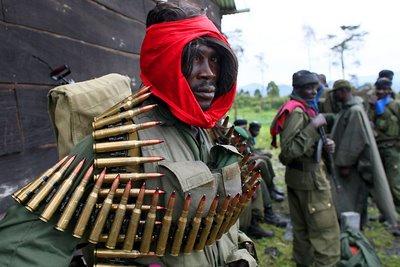Congolese army use humanitarian camps 'as bait'

Vaccination camps treating thousands of Congolese children were attacked by the Democratic Republic of Congo (DRC) army last month.
The army reneged on a security guarantee it gave to the medical-humanitarian organisation Médecins Sans Frontiéres (MSF) that runs the camps. Instead, the army used the camps "as bait" to attack members of the independent military group, Rwandan Liberation Democratic Forces (FDLR). MSF had launched a mass vaccination campaign in the DRC's Masisi district to support the DRC Ministry of Health in response to a measles epidemic.
MSF said: "On 17th October, MSF medical teams were vaccinating thousands of children in seven different sites in Ngomashi and Kimua zones, controlled by the FDLR at the time. The Congolese national army launched attacks on each of the vaccination sites. All the people who had come to get their children vaccinated were forced to flee the heavy fighting. Scattering everywhere, they are now in unknown locations and thus cannot be vaccinated. MSF had to stop their activities in these zones and evacuate the teams to Goma city."
“We feel we were used as bait,” said Luis Encinas, head of MSF programmes in Central Africa. “The attacks coincided with the beginning of our vaccination and put the lives of civilians in extreme risk. Thousands of people, and our teams, were trapped in the gunfire. The attack was an unacceptable abuse of humanitarian action to fulfill military objectives. How will MSF be perceived by the population now? Will our patients still feel safe enough to access medical care?"
MSF's neutrality allowed it to operate in the FDLR-controlled region since 1992. In this campaign alone, 165,000 children aged from six months to 15 years were vaccinated against measles. The organisation now fears that civilians will suspect them of colluding with the DRC army.
Millions of people have been killed in the civil wars that have characterised the Congo for decades. Conflict is partly a legacy of the Belgian colonisation; ethnic groups were displaced for industrial purposes, creating densely populated areas where economic tensions exacerbated ethnic divisions. Tribal favouritism among political classes post-liberation fuelled conflict.
The situation in the eastern provinces (largely excluded from peace negotiations) has deteriorated since 2008 and an estimated 40 - 45,000 Congolese die each month, most of them children under 5, and most from disease or hunger.
(Read more about the FDLR and Congo's history here)
